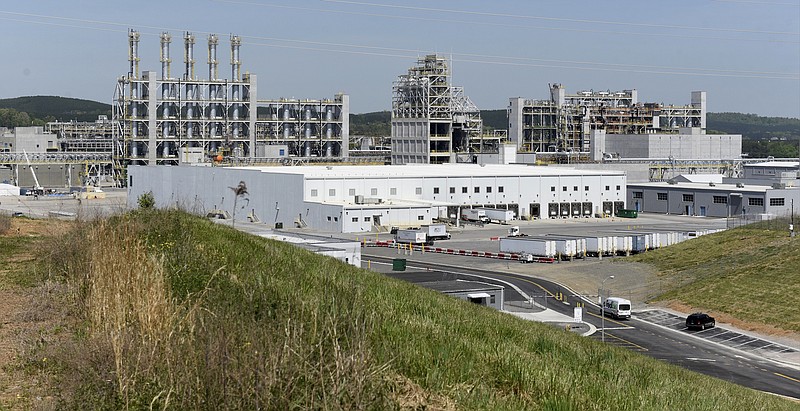A Wacker spokeswoman says that an area of the Charleston, Tennessee, polysilicon production plant where a fatal incident occurred late last year was recently released for repair and operation.
"It was temporarily shut down," said Lisa Mantooth, adding that investigations are ongoing into the incident in which one person died and four were injured on Nov. 13.
According to the Tennessee Department of Environment and Conservation, the fatal mishap took place during maintenance activity at the sprawling Bradley County factory.
The incident resulted in a release of about 15 pounds of hydrochloric acid (HCl), a TDEC statement said. The reportable quantity under the Emergency Planning and Community Right-To-Know Act and Comprehensive Environmental Response, Compensation & Liability Act for HCl is 5,000 pounds, the agency said.
The TDEC statement said the quantity of HCl released would not affect air quality or adversely impact the surrounding community.
But TDEC said HCl is a permitted source and the November incident is under investigation by the U.S. Chemical Safety and Hazard Investigation Board. In addition, the Tennessee Occupational Safety and Health Administration (TOSHA) has an investigation in progress.
Mantooth of Wacker said the company also is cooperating with a third party that's investigating the incident along with an internal probe.
"Wacker strives to identify improvements to plant safety and is committed to ensuring the safety, health and security of our employees, contractors, visitors, customers and the communities within which we operate," she said.
Mantooth said the company is "committed to understanding what led to the events that occurred on Nov. 13th and our thoughts and prayers continue to be with the family and individuals involved in the industrial incident."
The company spokeswoman said the incident that occurred in November did not impact the production of polysilicon at the Charleston plant. Polysilicon is used in the manufacture of solar power panels.
"In fact, as global demand for polysilicon has been increasing, we have created 50 new jobs to support this growth and the increased production needs," Mantooth said.
In 2016, the German company opened the $2.5 billion Bradley County plant, the biggest ever single manufacturing investment in Southeast Tennessee. Later, another $150 million was invested to turn a byproduct of its polysilicon factory into pyrogenic silica, a viscosity-adjusting agent in coatings, printing inks and adhesives. Then, officials planned to hire another 50 workers to join the 650 already employed there.
But the Wacker plant has experienced several incidents since it opened, though last November's involved the first death.
In July 2020, four contract workers at the plant were injured while performing maintenance in one of the process buildings at the facility.
That incident came less than three years after a chemical explosion at the Wacker plant in September 2017 injured 13 people, including plant workers, a firefighter and nearby residents. Wacker determined that a piston failure ignited a plant fire and sent 1,784 pounds of hydrochloric acid into the air.
TDEC concluded that explosion was caused by a "sudden and unavoidable failure of process equipment."
"Because the event meets the definition of a malfunction, and it is unlikely that public health or the environment were impacted due to the excess [hydrochloric acid] and [trichlorosilane] emissions, it is recommended that no enforcement action be taken for the excess emissions resulting from the event," a report said about that incident.
A TOSHA investigation into the same incident determined there were five serious violations and two "other-than-serious" violations that resulted in more than $25,000 in fines. A separate TOSHA investigation into an unrelated chemical spill that sent five workers to area hospitals a week prior to the explosion found two serious violations resulting in more than $20,000 in fines.
Wacker officials suspended chemical production for nearly eight months following the explosion as they looked into the incident, hired a third-party investigator, cleared the area of dangerous debris and chemicals, and made safety improvements to the facility.
Contact Mike Pare at mpare@timesfreepress.com. Follow him on Twitter @MikePareTFP.
